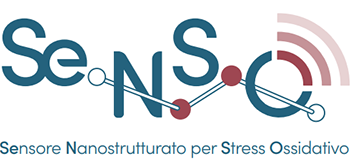Project title: SE.N.SO. – SEnsore Nanostrutturato per Stress Ossidativo (Development of a miniaturized device for monitoring oxidative stress in cellular systems)
Start/end date: 12/01/2021 – 28/09/2023
Fondazione Ri.MED (Palermo).
Ri.MED Principal Investigator: Chiara Cipollina

The project is divided into four phases:
– Phase 4. This phase will be dedicated to results dissemination.

